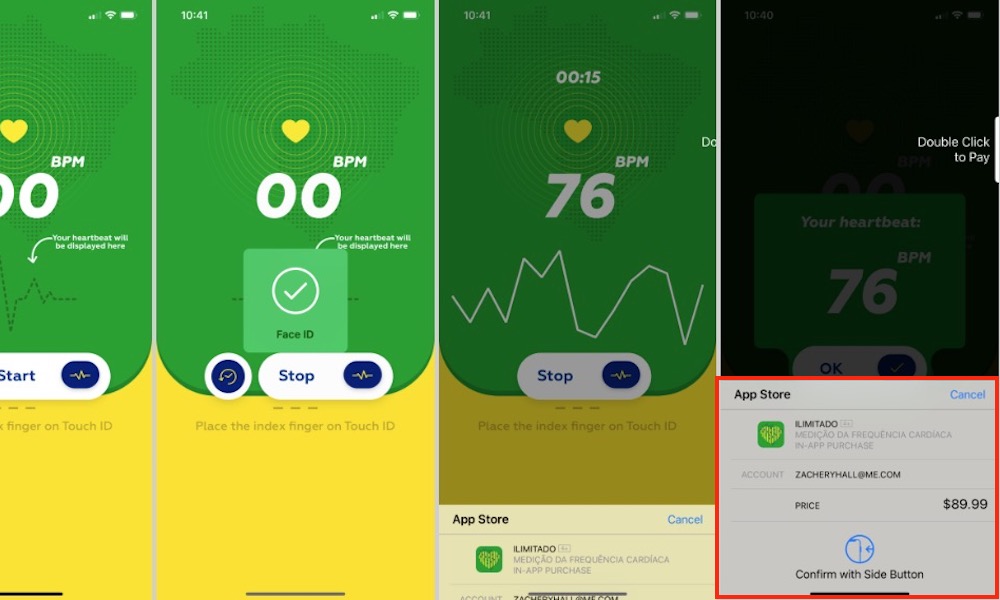Beware of Fake ‘Heart Rate’ Apps Designed to Scam iPhone Owners
 Credit: 9to5Mac
Credit: 9to5MacToggle Dark Mode
Apple’s App Store is currently home to a number of ‘heart rate’ apps — third-party software titles which promise users the ability to measure their variable heart rate, in most instances, by placing and holding their finger against an iPhone’s rear camera lens.
While the use of these third-party heart rate measuring apps is more prevalent than ever, with premier titles like Azumio’s Instant Heart Rate: HR Monitor having already been downloaded millions of times, unfortunately, despite Apple’s best efforts to “clean up shop”, the iOS App Store is still home to a few deceptive (and seemingly fraudulent) apps promising the same functionality.
One example of such apps, as 9to5Mac notes, is a title called Heart Rate Measurement, which was available to download from the App Store as of Friday morning.
While the title may appear aesthetically inviting and promise accurate heart rate measurements, in actuality, it’s “a rather sophisticated and devious trick” designed to con unsuspecting users with claims of providing accurate heart rate measurement via Apple’s Touch ID sensor on equipped models.
The publication cautions that “in reality, the app uses your fingerprint to authorize a transaction for $89.99 while dramatically dimming the screen to fool you.”
Given that the scam relies on Apple’s Touch ID fingerprint reader, it’s reportedly less effective on newer devices featuring Face ID — such as iPhone X, XS, XS Max, XR and the 2018 iPad Pros.
App Store Policy
While Heart Rate Measurement is in clear violation of Apple’s recently-updated App Store policies — which strictly forbid titles that employ “deceptive practices”, including attempts to fool customers with unrelated in-app purchases — the title is still available to download now.
There is a chance this scam was employed within the Heart Rate Measurement app after Apple initially reviewed and approved it. The company’s guidelines note, for example, that it only requires approval for in-app purchases during the initial App review, and therefore devs are free to change the price of items at their discretion.
Sadly, even despite the company’s updated policies for approving or denying titles distributed via its iOS App Store, the presence of this (and possibly other) fraudulent apps only proves that nefarious actors are still out there, trying as they might to exploit any loop-hole they can. Luckily, while the app is still in circulation and potentially posing a threat, Apple is quick to respond in matters like this — and so it likely won’t be available for long.






